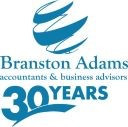
Welcome to our round up of the latest business news for our clients. Please contact us if you want to talk about how these updates affect your business. We are here to support you!
With the present economic uncertainty, managing your business’s cash and understanding the flow are now vital tools in maintaining resilience and being able to adopt flexible strategies for success.
Cash flows reflect all the cash that is flowing in and out of a business. Owners can look at the direction of the cash flows for insights about the health of specific products or services and overall market patterns.

Some types of business are more likely to run into cash flow problems, while other types appear to be more resilient. If you are a business owner, you might be wondering which category your business falls into. No matter how inventive or simple your business model is, you can still have problems with cash flow. Here are our thoughts on managing the flow of cash in your business:
The first stage of understanding and predicting how funds flow is to perform a health check on your accounts. Look at your latest profit and loss statement and check that your income is sufficient to cover your expenses. If your profit is falling behind your expenses and cash flow is slowing down, you might need to take action. Prepare a funds flow statement so you know where the money goes.
Next create a yearly budget; look where cash could become tight and identify months where you can save to cover off the quieter times. Look at those quieter months and think about flexible work scheduling, new products or services or other activities to tide you over.
Finally make sure you collect your money from those who owe you quickly. Reward customer loyalty by offering early bird discounts. Set credit limits and payment terms to ensure customers follow the rules. If you take on new customers, make credit checks. Penalise late payers and request up front deposits or payment.
We specialise in helping businesses plan forward and adopt flexible strategies so please talk to us about preparing a cash flow statement and an annual budget to help you reach your goals.
From tax year 2023 to 2024 onwards, the Self-Assessment threshold for taxpayers taxed through PAYE only will change from £100,000 to £150,000.
Affected individuals do not need to do anything now as the Self-Assessment threshold for 2022 to 2023 tax returns remains at £100,000. They will receive a Self-Assessment exit letter if they submit a 2022 to 2023 return showing income between £100,000 and £150,000 taxed through PAYE and they do not meet any of the other criteria for submitting a Self-Assessment return.
For the 2023 to 2024 tax year onward taxpayers will still need to submit a tax return if their income taxed through PAYE is below £150,000 but they meet one of the other criteria for submitting a Self-Assessment return, such as:
See: Issue 108 of Agent Update - GOV.UK (www.gov.uk)
It is important to make sure your workplace is inclusive of deaf people and people with hearing loss.
If you don’t, you are excluding a large number of people: for example, 1 in 5 people of working age have hearing loss which may have an impact on their communication, productivity and wellbeing.
The RNID (Royal National Institute for Deaf People) is an independent charity supporting the 12 million people in the UK who are deaf or have hearing loss or tinnitus.
They can help with:
See: Support for businesses and organisations - RNID
Listed below are several live HMRC webinars that will give the self-employed an understanding of key taxes that affect them and also help employers with payroll. The webinars are free and last around an hour.
Webinars for the self-employed
Residential property income for individuals - an introduction
Thu 15 Jun at 1:45pm
Thu 22 Jun at 9:45am
Residential property income for individuals - expenses, and deductions
Wed 14 Jun at 9:45am
Thu 22 Jun at 1:45pm
Car expenses for the self-employed
Wed 21 Jun at 9:45am
Wed 21 Jun at 1:45pm
Business expenses for the self-employed
Wed 21 Jun at 11:45am
Thu 22 Jun at 11:45am
How to apply the VAT reverse charge for construction services
Tue 27 Jun at 1:45pm
Capital Allowances for the self-employed
Wed 28 Jun at 1:45pm
Thu 29 Jun at 11:45am
Record keeping for the self-employed
Thu 29 Jun at 1:45pm
Employer webinars
Expenses and benefits for your employees - company cars, vans, and fuel
Thu 15 Jun at 11:45am
Expenses and benefits for your employees - if your employees have more than one workplace
Fri 16 Jun at 11:45am
Expenses and benefits for your employees - travel
Fri 23 Jun at 9:45am
Expenses and benefits for your employees – phones, internet, and homeworking
Tue 27 Jun at 11:45am
The table below sets out the HMRC advisory fuel rates from 1 June 2023. These are the suggested reimbursement rates for employees' private mileage using their company car. Where the employer does not pay for any fuel for the company car these are the amounts that can be reimbursed in respect of business journeys without the amount being taxable on the employee.
|
Engine Size |
Petrol |
Diesel |
LPG |
|
1400cc or less |
13p |
|
10p |
|
1600cc or less |
|
12p (13p) |
|
|
1401cc to 2000cc |
15p |
|
12p (11p) |
|
1601 to 2000cc |
|
14p (15p) |
|
|
Over 2000cc |
23p |
18p (20p) |
18p (17p) |
Where there has been a change, the previous rate is shown in brackets.
You can also continue to use the previous rates for up to 1 month from the date the new rates apply. Note that for hybrid cars you must use the petrol or diesel rate. For fully electric vehicles the rate is 9p (8p) per mile.
Please contact us if you need any further clarification.
Small Business Saturday is once again highlighting 100 small businesses, one a day for 100 days leading up to Small Business Saturday 2023.
For the last ten years, the 100 have not only received exposure on Small Business Saturday's social media channels and in the local and national press, but also joined the Small Business Saturday team in London at receptions in Downing Street, House of Lords, and the Treasury Drum with the Chancellor of the Exchequer.
Applications close on 30 June 2023. Successful applicants will be notified by email in August.
See: Small Business Saturday UK | Another year making a Big Difference!
The Intellectual Property Office (IPO) has published a document which sets out what you can expect over the next 12 months as we count down to the launch of their new digital patents service.
The IPO states that 2023 is the year that change starts to happen and transformation becomes real. With one year to go until the new One IPO service launches for patents, this document outlines what you can expect over the next 12 months. It includes a timeline for the rollout of the new service, the features you can expect and the changes that are coming.
See: One IPO Transformation: one year until the new patents service - GOV.UK (www.gov.uk)
Paid annual leave is a legal right that an employer must provide. Holiday pay is worked out according to the kind of hours someone works and how they’re paid for the hours.
This includes:
Workers are entitled to a week’s pay for each week of statutory leave that they take.
You can calculate holiday entitlement for a full year and part of a leave year (if the job started or finished part way through the year) using this calculator: Calculate holiday entitlement - GOV.UK (www.gov.uk)
For further information on holiday entitlement see: Holiday entitlement: Holiday pay - GOV.UK (www.gov.uk)
The Insolvency Service has successfully secured the winding-up of 11 companies for their part in a scheme which orchestrated systematic fraud against UK taxpayers during the covid-19 pandemic.
Between them, the companies claimed £500,000 through the Bounce Back Loan scheme. The companies claimed to be registered at various offices in Berkshire, Lancashire, London, and Shropshire, however the Insolvency Service investigation could not identify trading premises for any of the businesses, nor establish that they had ever traded.
Nine of the companies were found to have claimed the maximum available £50,000 through the Bounce Back Loan scheme, with one company even claiming two loans. Investigators found a host of links between the various companies, including the use of common addresses, with funds being moved between them before ultimately being transferred to entities registered in Hong Kong.
The companies were identified by investigators due to their links to five other companies that had previously been wound up by the Insolvency Service in 2021 and 2022. These had themselves been responsible for fraudulently claiming £250,000 between them in Bounce Back Loans and £350,000 in Small Business Grants.
The Official Receiver was appointed liquidator of the 11 companies closed down by the court at the hearing on 22 May 2023. The Official Receiver is working to trace the funds and those responsible, with a view to recovering the money.
See: Network of fake companies shut down following Bounce Back Loan fraud - GOV.UK (www.gov.uk)
Last week we learnt that more than 100,000 people have been warned their personal data is in the hands of cyber-criminals as a result of a continuing mass hack.
The BBC, British Airways, Aer Lingus and Boots are among the companies whose staff have been affected by the MoveIt data breach and even more organisations are expected to issue staff warnings, as the extent of the breach is discovered.
If you have not implemented cyber security in your business then now may be a good time to consider the UK government “Cyber Essentials” to help protect you against a whole range of the most common cyber-attacks.
Cyber-attacks come in many shapes and sizes, but the vast majority are very basic in nature, carried out by relatively unskilled individuals. They’re the digital equivalent of a thief trying your front door to see if it’s unlocked. The advice is designed to prevent these attacks.
See: About Cyber Essentials - NCSC.GOV.UK
The Insolvency Service has issued a warning to investors and its customers regarding a recent increase in fraudulent activity, including recovery room scams, and fraudsters impersonating genuine Insolvency Service employees, in the form of emails, phone calls and letters.
Recovery room scams usually follow an investment scam, where victims have already lost money. Victims are cold called by fraudsters who pretend to be from a different company. High pressure tactics are then used to obtain upfront charges/fees, described as, for example, tax, solicitor fees and administrative fees. This can result in losses that can be greater than the initial investment loss.
To legitimise their contact, recovery room fraudsters will send fake letters with the Insolvency Service logo, spoof the Insolvency Service’s telephone numbers, provide fake Insolvency Service telephone numbers, use a fake email address like those officially used by the Insolvency Service, impersonate a legitimate employee of the Insolvency Service, and refer investors to social media accounts of Insolvency Service employees.
The Insolvency Service will never ask for an upfront fee to get your money back that you have lost in a previous investment. If contact appears to be from the Insolvency Service, or a company purporting to be acting on behalf of the Insolvency Service, asking for an upfront fee, this is a scam.
Separately, fraudsters are impersonating legitimate employees of the Insolvency Service by contacting individuals using fake email addresses and letters.
This activity is in no way affiliated with the Insolvency Service and recipients are being advised to exercise caution and familiarise themselves with the official telephone number and domains used by the agency.
See: Warning issued by the Insolvency Service on scams - GOV.UK (www.gov.uk)
Communities and businesses in the most remote areas will benefit from better access to wireless networks following the announcement of government plans.
A new £7 million fund will test out new ways to bring together satellite, wireless and fixed line internet connectivity, helping support farmers and tourism businesses to access lightning fast, reliable connectivity in remote areas for the first time.
The results of the new approaches will also help rural businesses in trial areas make the most of new agricultural technologies by improving connectivity on their land, for example using new drone technology to monitor crops and livestock in real-time, support landscape and wildlife conservation efforts, or develop interactive experiences for tourists.
To boost the supply of new affordable housing to rent or buy in rural areas, the UK government will create a network of new “Rural Housing Enablers” to act as honest brokers between developers and communities. Backed by £2.5 million of funding, they will help to identify sites with local support for development and in keeping with the local area.
The UK government will consult on making it easier for farmers to change their redundant agricultural buildings into family homes by cutting red tape. Planning rules could be changed to provide a more generous threshold delivered through the more streamlined planning process, while providing local authorities with new powers to safeguard against second homes and holiday lets.
See: Government launches new drive to support rural communities - GOV.UK (www.gov.uk)

The following Cookies are used on this Site. Users who allow all the Cookies will enjoy the best experience and all functionality on the Site will be available to you.
You can choose to disable any of the Cookies by un-ticking the box below but if you do so your experience with the Site is likely to be diminished.
In order to interact with this site.
To help us to measure how users interact with content and pages on the Site so we can make
things better.
To show content from Google Maps.
To show content from YouTube.
To show content from Vimeo.
To share content across multiple platforms.
To view and book events.
To show user avatars and twitter feeds.
To show content from TourMkr.
To interact with Facebook.
To show content from WalkInto.